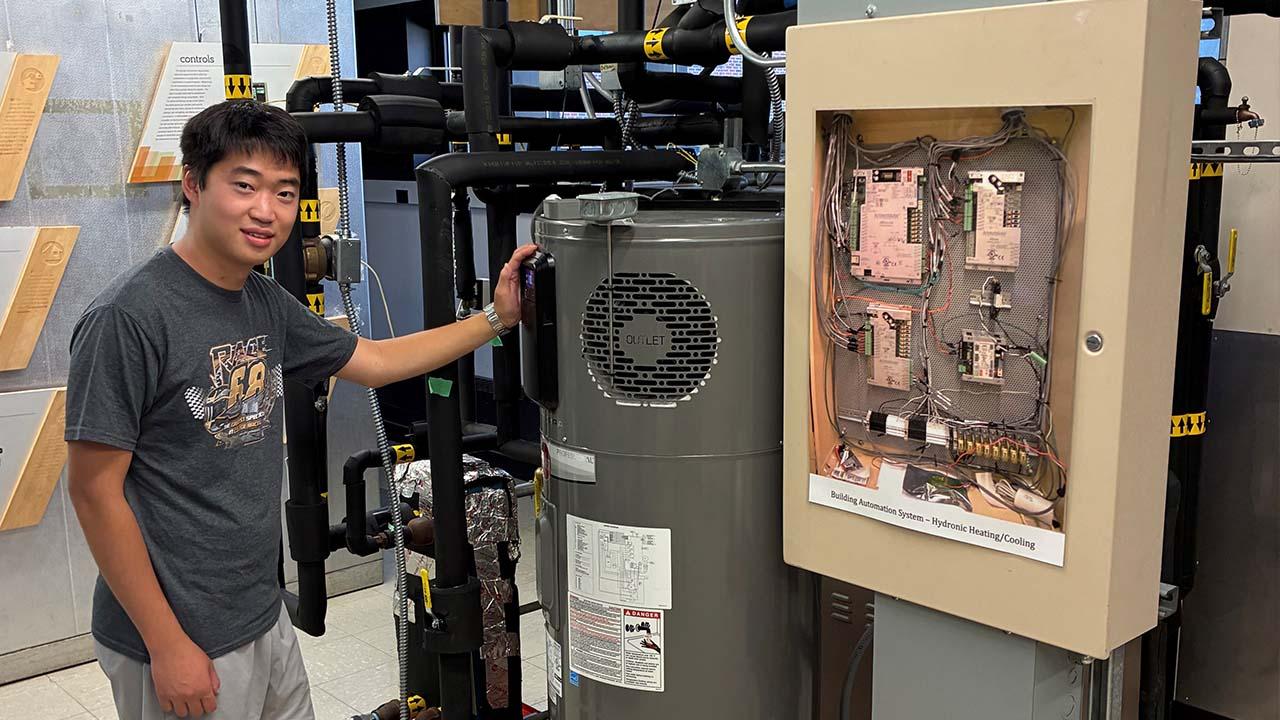Applied Energy Laboratory

The Applied Energy Laboratory has approximately 1,800 square feet and accommodates up to 36 students in a modern laboratory environment that can also be used for classroom lectures. Along with a variety of equipment for teaching lab-based undergraduate thermal and fluid science courses, the facility also features computer-controlled heating and cooling systems that mimic the types of equipment found in modern commercial buildings.
The lab exists to provide teaching and applied research opportunities for both undergraduate and graduate students related to energy systems with a particular focus on high performance building and solar energy.
Students who spend time in the Applied Energy Laboratory frequently pursue careers in mechanical design, controls design, or technical sales related to commercial buildings. More broadly, students develop an appreciation for the types of equipment and sensors used for evaluating thermal systems in many different fields.
Current research projects and application:
- Solar Decathlon Design Competition for U.S. Department of Energy
- Solar Decathlon Build Competition for U.S. Department of Energy
- Biowall Research
Lab equipment:
Solar thermal system, solar photovoltaic system and commercial HVAC equipment that are monitored and controlled by web‐enabled building automation systems.
Outside funding and support:
A variety of teaching grants, research projects, and industry partnerships have supported ongoing laboratory development. Recent partnerships with ASHRAE, Automated Logic, Grundfos, Belimo, Water Furnace, and Rheem have created a state-of-the-art heat pump assisted solar thermal loop that supports teaching and research into Net Zero Energy Buildings (NZEB).